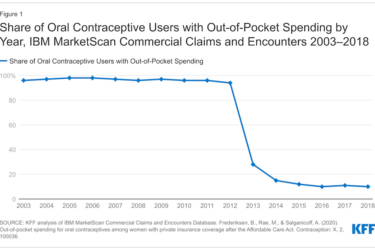
Rising costs are putting many older adults in an economic bind. Some are skimping on basics like food to pay for health care; others are foregoing health care entirely. Both approaches may have serious long-term health consequences, according to a recent survey from Gallup and West Health.
Over one in three adults 50 and older have forgone basics such as food or utilities to pay for health care. Conversely, some older Americans are skipping needed health visits or medication because of costs. U.S. adults 50-64, women, and Black adults are more likely to cut back on basics, according to the Gallup poll. However, more than a third of adults 65 and older (37%) also said they are concerned about affording needed health care services in the next year.
Journalists can use these results as a starting point for examining the cost of care locally and programs available to help offset health care costs or other basic living expenses. This is particularly relevant as inflation continues to rise forcing more people to choose what to pay for and what to sacrifice.
Adults 50 to 64 are not yet eligible for Medicare, but many are already experiencing health problems. Nearly 50 million adults 50 and older are at a critical age because they will need additional care as they age, Nicole Wilcoxon, Ph.D., research director at Gallup said in a Zoom interview. “Cutting back on care due to cost puts them at risk for more severe illness and even death.”
Analyzing the results
The Gallup poll attempted to quantify the potential long-term consequences of missed or inadequate health care. Out-of-pocket health care expenses for adults 65 and older jumped 41% from 2009 to 2019. These costs take up a greater proportion of individuals’ expenditures as they age because of the increased demand for health services and the resulting copays and deductibles (Medicare pays about 80% of part B or physician costs after a beneficiary meets their deductible).
The poll found that among those 50-64:
- 24% said health care costs are a major financial burden; 48% called health costs a minor burden.
- 26% said they or a member of their household recently did not seek treatment because of the cost. That’s more than double the rate of those 65 and older.
Among those 65 and older:
- 12% said they or a member of their household had a health problem in the last year that they did not seek treatment for due to cost.
- 11% said they or a family member skipped prescribed pills to save money.
- More than four in 10 adults 65 and older (42%) said that health care costs cause stress in their daily lives. Stress can exacerbate existing health problems.
Of the approximately 13 million people 65 and older who cut back on other basics to pay for health care:
- 9% reduced spending on food.
- 13% decreased spending on over-the-counter drugs.
- 6% cut back on utilities.
- 19% cut back on clothing.
- Women 65 and older were more likely than men in this age group to have cut back (22% vs. 15%, on clothing, respectively), over-the-counter drugs (15% vs. 10%), and food (11% vs. 7%). Among those ages 50-64, 28% of women report reducing spending on clothing, compared with 23% of men.
The poll also found that racial disparities were separate from income disparities, according to Wilcoxon. Even when controlling for income, racial differences still appeared. Black Americans in the 50-64 demographic were more likely than whites to sacrifice at least one basic need highlighted in the survey (38% to 29%, respectively):
- Blacks were more than twice as likely as whites to say they cut back on utilities (15% vs. 7%).
- Black adults were also more likely than whites to trim their clothing budget (31% vs. 24%). and cut back on spending on over-the-counter drugs (19% vs. 13%).
“This isn’t directly in the data, but there’s probably some disparities into equal ability to reach the doctor or ability to find cost-effective health care in their locale. So that’s a concern,” Wilcoxon said.
“Among Black Americans, we see disparities across income dimensions as well. That problem is amplified, so this is another concern as this group of 50-to-64 year-olds ages into Medicare,” she said. Black adults 50 to 64 seem exponentially more impacted by these costs, the survey found.
“It really speaks to health and health equity issues. From a policy perspective, that’s something that this data is pointing to. While the current data is not broken down geographically, it is something that could potentially be an area of future research on those populations,” Wilcoxon said.
Resources for reporters
- Gallup 2021 Healthcare in America Report — Gallup
- The Growing Cost of Aging in America Part 1: An Aging Population and Rising Health Care Costs — George Washington University, Milken Institute School of Public Health (2018)
- Health and Economic Costs of Chronic Diseases — CDC
- Paying for Care — National Institute on Aging
- When Costs Are a Barrier to Getting Health Care: Reports from Older Adults in the United States and Other High-Income Countries — Commonwealth Fund (2021)









